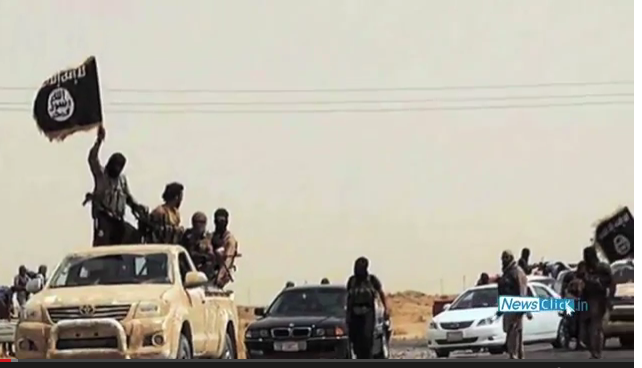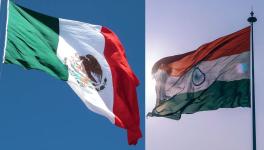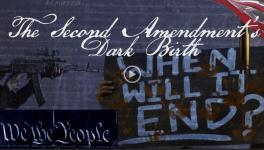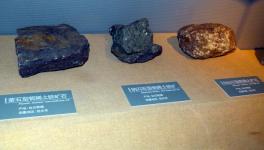Iraq Crisis: Disaster for the Region
Newsclick discusses with senior political analyst, Professor Aijaz Ahmad, the recent events in Iraq that have taken the world by surprise. Prof Ahmad feels that the war in Iraq spells disaster for the entire region, with fraternal genocides being instigated. It will destroy secular nationalism in these states. He also underscores the fact that the developments in Iraq will have global repercussions, specially with the kind of advancement in communication technology we see today.

Transcript:
Prabir Purkayastha (PP): Hello and welcome to Newsclick. Today we have with us Professor Aijaz Ahmad to discuss the recent events in Iraq which have taken the world quite by surprise. Aijaz the speed of the ISIS advance in Iraq seems to have surprised everybody. Fall of Mosul to almost coming out to the gates of Baghdad- 60-70 miles from there is what the reports seem to suggest. Did you think that this was on the cards?
Aijaz Ahmad (AA): Well, no. I didn’t think it was on the cards any more than anyone else thought. But now looking back one can see that as soon as there were able to do three things: one, withdraw substantially from Syria for this operation. They’ll of course go back again in full force. So that augmented their numbers. Second, they were able to make very big alliances with the ex-Ba’athists, with the Naqshbandiyah Order of the Sufis and a number of other militant groups and so on. So Hashimi, who is the former Vice-President of Iraq under Maliki in a former government- a Sunni person-, says that the ISIS operation is really just a part of a much bigger uprising. Rapidity of it, I think, is accounted for by three factors. One, these are people who used to move very fast in Toyota trucks and now they have got immense number of these mint condition Humvees that the Americans had given to the Iraqis. This is not an army. This not an army that needs tanks or this that or the other and they go with very light weapons. That is one, very big one. The other is the popular support for them. That is quite obvious that Sunni people en masse, through various kinds of alliances, seem to be on their side. Increasingly we find that ISIS individuals may in fact be a small number of who’s on the move. So there is that, and a complete breakdown of the Iraqi Army.
PP: Yes it seems that they’re facing about 2500 of these fighters- whatever the combination might be- and 30-50,000 troops just ran away. That’s what seems to have happened and handed over all the arms, armaments to them!
AA: They just left the armament in their depots and so on and just ran away. So these people went into the depots and go all of that stuff. Now there are different explanations for it. One is corruption, that the Officers Corp. is so corrupt that it has no interest in fighting. It has been corrupted through 10 years of the sort of bribery upon which the Americans actually built this armed force and so on. The other, which the government is claiming, is that it was a…. they were directed to not resist and fall back. We don’t why, but they disappeared. There may be some other reason. One speculation actually is that the idea is to create such a crisis and build up this threat to Baghdad so much that you entice the Irani army- armed forces- on a considerable scale to do the fighting, something that Iran has resisted until now- to actually get involved in a big way in a land war in the region. So in that sense it seems it could actually be a move not only on the Shia government of al-Maliki but also against Iran.
PP: Interestingly, all the reports coming out of Iran are not saying that they will go into Iraq. In fact they’ve said- ‘we are not going to put our boots on the ground in Iraq’. That’s their official position, reiterated a number of times and also saying- ‘we don’t know what the Americans are talking about. They’re certainly not talking to us and we don’t see any joint possibilities of working with them in Iraq’. So both are the statements that have come out of Iran, very different from the reports that the Western media is carrying and very different from what United States seems to be hinting. At the same time, of course, they have the other track on Iran with regard to the nuclear issues and so on. But let’s not get in to that today. Looking at this overall picture, do you think that one of the agenda that the United States has is really the trifurcation of Iraq? Kurd areas, Sunni areas and Shia areas?
AA: I certainly think that that has been on their agenda since before the invasion of 2003. They effectively created a viable Kurdish state during the 10 years or so leading up to that invasion. Breaking up countries, generally, is very much on their agenda. Quite possibly break up Syria and so on. So that trifurcation has always been there. Whether that is something they have intended right no, I don’t know. I think one of the things that has happened with the United States is that they are moving along very pragmatically and creating contradictions for themselves. The same Sunnis terrorists- these people that they say they are going to contain in Iraq and against whom they’re going to defend the al-Maliki government- are the ones they were sponsoring and will again sponsor in Syria. So what games are being played with whom? Americans are clearly in touch with Zawahiri and other main leaders of al-Qaeda. The relationship between ISIS and so-called “core al-Qaeda” which is led by Zawahiri and so on is very unclear and, I think, shifting. Americans are playing, I think, both sides of the game. Out of that whatever picture emerges, they have 2-3 contingency plans for each one of them. One let it get to a point where you can trap the Iranis and they have no choice but to go in, in a big way. A small number of their advisers- what they call advisers and so forth- are in Iraq and Syria. We all know that. But that is completely deniable; it’s not boots on the ground. That is one kind of it. That will work perfectly well with Israel and Saudi Arabia and the whole coalition led by the United States. If Iranis are able to withstand that pressure, and I believe they can because unleashing the Shia militias in Iraq, they can control the situation.
PP: Exactly. In fact the Shia militias are certainly armed and they have been- as you are saying with Irani advisers and so on they have also a certain….
AA: They’re also very experienced.
PP: And they are certainly far more willing to fight than the Baghdad Army that the United States has built. So given that, the problem that arises is then the agenda of having really a Shia, Sunni and Kurdish statelets created over Iraq is really what comes into being. Then you have an Iraqi Shia state, a Syria insurgency with, of course, the same set of forces which are threatening Baghdad today and then you have this whole issue of Saudi, Turkey and a tacit Israel alliance which would be working on the other side. In this it’s very difficult to understand how the long term interests of the United States- which is really oil- how it’s going to be subserved.
AA: Look, I don’t think the Americans are in control. I think this is the consequence, as of now, of the two fundamental things that they did at the time of the invasion. They went in with the assurance from the Shias that they will be welcomed with flowers and they were welcomed with metaphorical flowers by the Shias. They made that whole alliance with all of these Shias- most rabid, sectarian people like al-Maliki. That is one, and then they found themselves relying on them and al-Sistani said you have to have the elections and create a parliament and that parliament becomes a constituent assembly. They had to do it and that constituent assembly basically disinherited the Sunnis. But beyond that, the so-called “de-Ba’athification”.... all the Sunnis in any kind of government profession, or any kind of profession anywhere, were deprived of their livelihood. The army was majority Sunni. So al-Maliki’s sectarian government takes in the Shia officers who become the nucleus of his so-called new army, but all of the rest of the army doesn’t even have a job anymore and they’re hounded; they’re killed. They withdraw into places like Anbar province, Fallujah, Mosul and so on, and disappear into the population. Now they’re coming back. I think there is going to be a tussle for power between the Ba’athists who are not sectarian in that sense, they’re not religious in anyway. They may be secular sectarian- Sunni vs. Shia but not in the name of god. That and various other forces. However, two things. One is that ISIS has been able to capture so much very high-level weaponry and so much money. By now they may have something on the order of 2 billion dollars in their coffers. What they’ll get in the future we don’t know but that’s what they have and an immense amount of very good weaponry. So they can command and Americans need them to send them back to Syria. So that is one sort of thing you’re going to have. The other thing is, while this interim maneuvering is going on, is it in anybody’s interest to have extremely rabid, ultra-fundamentalist Sunni state straddling half of Iraq and half of Syria? This really is, by far, the most powerful fundamentalist movement. In fact, Tehreek-e-Taliban Pakistan is nothing compared to this. It has the same kind of ideology and all that but it is… the old al-Qaeda was nothing compared to this, nobody. You give them a state of that order, even as some interim solution and you’re stuck with it.
PP: And these are also oil-rich areas. Even in Syria, that’s the only place where there is some oil over there…
AA: They have taken over those little oil wells and part of the money that is coming now on a monthly basis, it’s said that they are earning something like 50 million dollars a month from oil sales alone! And now there are big refineries in the general Mosul area.
PP: Yeah yeah, the biggest refinery in Baija has fallen. It’s fallen to them. They may not be able to control it but it has fallen to them.
AA: When they can make it work, when they cannot etc.
PP: You know Aijaz looking at all this, it does seem that the US went into Iraq with the premise that the invasion would be paid for and the occupation would be paid for by the oil they get out of it. That hasn’t happened. They felt that they would be able to remake Iraq the way they want it. That hasn’t happened, and what has now emerged is a far more dangerous West Asia, North Africa- if you will- with the fall of Libya, with the fall of Iraq, breaking up of Iraq currently, the kind of insurrection going on in Syria. This whole region has been really led into wars of different kinds for which there doesn’t seem to be any immediate solutions in sight.
AA: Well, two or three responses very quickly. One, the neocons said in the beginning that it’ll take us 30 years to remake the region. So we’re only 13 years into that, we’re not even half way there. That’s one thing that doesn’t disturb them. Secondly, I believe, that not the whole of the US state by any means but very powerful elements in people who provide the policy inputs, Kagan and all of these people- Kagan whom now Obama is quoting from his latest book. These neocons who are very influential in large parts of the policy making establishment have always wanted to break up constituted states into little warring states. That’s one way to control these states and to destroy whatever secular nationalism there was in these states. All of this functions enormously in the favour of Israel. Nothing could work in the favour of Israel compared to what they have done over the last 10 or 12 years. That whole part of the US state which is very much tied up there, not all of it but lots of it, is perfectly willing to do all this. They don’t lose anything. The problem has been, I’ve always said, what happens when you break up all of this and you can’t control all the fragments?
PP: That’s exactly what’s happening now.
AA: If there’s a constituted state you can put all kinds of pressure there; you can get into all kinds of negotiations. You can give them some, you can take some. There’s somebody at the other end who also has certain rational state interests. Now there are not going to be any such people for you to deal with and fragments are going to be so many that you can’t control it. I think there must be half at least of the Turkish establishment who must have been sitting there wondering what is it that we have unleashed? Because these fundamentalists, they want Turkey and Saudi Arabia and the whole lot.
PP: You know this is what I was saying that while it might appear on paper that breaking up the states, divide will lead to rule but the point we’re saying is divide is not going to let to rule but it is actually going to let to continuous wars in the region which, at the end of the day, will not lead to a resolution in terms of stable states, what you were talking about. So effectively this kind of opening out of internecine wars which was, they thought, in their interest, actually has now led from Afghanistan- Iraq is the only exception- to North Africa, large parts of it having become militarily unstable with wars going on- Nigeria, you have other places. Libya of course is the classic example. All these regions from Nigeria, Somalia to now Iraq and of course Afghanistan, are in some kind of military wars of this kind. That, to me, is a disaster for at least this region. The United States is protected by various oceans, only their energy may be at some risk but for all of us who are in the region, it’s a huge threat.
AA: Absolutely. There would be a dozen fraternal genocides.
PP: At the way it’s going…
AA: Yeah. The way it is going. In Iraq alone, Turkmen Shia vs. Turkmen Sunni, Kurdish Shia vs. Kurdish Sunni, Kurds against Arabs, Arabs vs. Sunni. When the thing begins to melt and you have a situation in which everybody is against everybody, you have numerous fraternal genocides.
PP: There was a statement that the neocons used to make that you can’t make an omelette without breaking an egg. Unfortunately the states are not eggs and what they’re building, or trying to build, unfortunately doesn’t qualify as an omelette! So this is the whole issue.
AA: Yeah. They’re breaking up states in a way that you can’t even have… let’s say in Iraq, tripartite looks very good on the map but there’s not going to be a tripartite division. You make that and it’s going to be as unstable as territorially unified Iraq. So it’s not that kind of a thing that’s going on. You make a society breakdown and in modern times, communications and weaponry levels and fund levels and all of those things being what they are, you can insulate this in a region or in a cluster of regions. It will have global repercussions. Actual people can travel. Once they have that kind of power, no one is going to be safe.
PP: Let’s look at it. 9/11 happened with pen knives! So it was really taking over aircraft with pen knives. Now we’ve given them all this sophisticated weaponry and we expect nothing to happen?
AA: Yes. These are people who didn’t have anything sophisticated, no one knew them; they were marginal forces in their countries and now they’re the dominant forces in their countries from Pakistan, Afghanistan all the way to the Mediterranean shores of North Africa.
PP: Even beyond. Nigeria, Somalia. It’s a huge swathe.
AA: And then it goes into Russia and it goes into China and into Europe.
PP: So things don’t look good right now. The Americans are claiming Tony Blair has said that this has nothing to do with 2003. It’s very much 2003 coming back to haunt all of us and we have to see….
AA: Very specific decisions that they made.
PP: So we have to really see how it develops further. At the moment it does seem that the Shia areas, Baghdad etc., seem to be holding because what you said- the Shia militias have mobilized. So that way it’s a little…
AA: In Baghdad the ethnic cleansing of the Sunnis was so immense in two waves of the civil war, around 2004 and then 2006-7, that it is almost completely a Shia city now.
PP: So therefore the ability of the Shia militias to hold that part of Iraq is much greater.
AA: And ISIS and even the Ba’athists are not going to attack Baghdad as such. They may surround it, they may destabilise it, they may do various other things but they’re not going to try and take it.
PP: The other threat of course is again hitting back at Assad because that’s where they got their initial impetus from.
AA: Yes. Once they have stabilized this situation or they’ve perceived to have stabilized it sufficiently for themselves, they’ll go back to Syria and go back to Syria with much more power than they had previously. So a completely second wave of Syrian War will start after this subsiding for a bit in between.
PP: Thank you Aijaz. I think this is a situation which we will have to watch as it develops. It’s clear that the US does not really have any game plan that is holding. On one side they support al-Maliki and Shia sectarianism and on the other hand they support Sunni sectarianism in Syria. So in two parts of the territory they’re doing completely different policies it appears. Of course you have Saudi Arabia and Turey behind all this including the Gulf monarchies. So it really is a long term development that we need to watch and Newsclick will keep watching this along with you. Thank you very much.
AA: Right. Thank you.
Get the latest reports & analysis with people's perspective on Protests, movements & deep analytical videos, discussions of the current affairs in your Telegram app. Subscribe to NewsClick's Telegram channel & get Real-Time updates on stories, as they get published on our website.
























